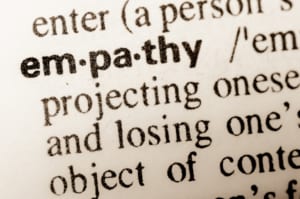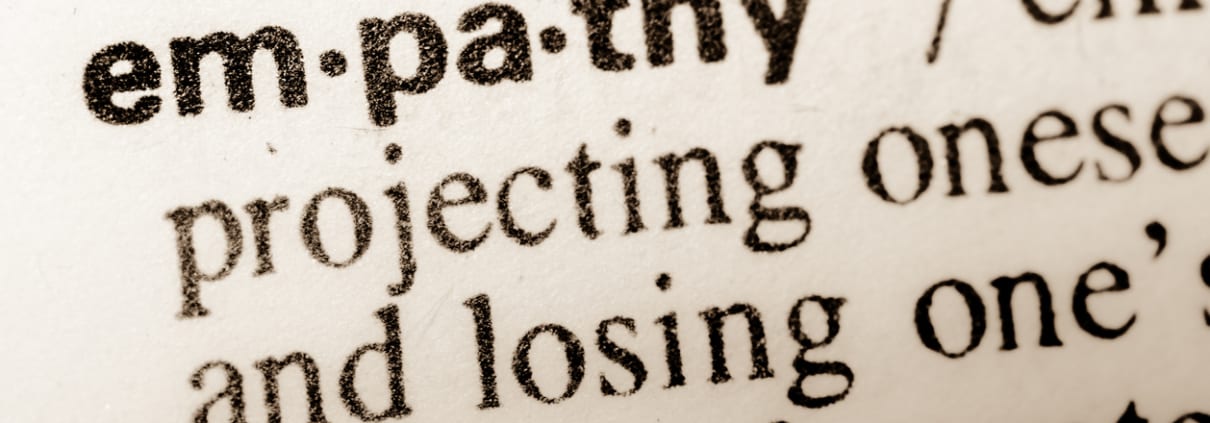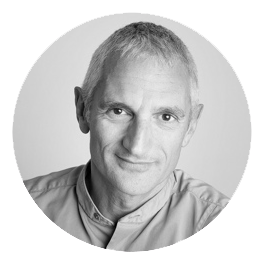Empathy – is it a placebo? And five top tips for being more empathetic in everyday life

I attended a fascinating course last month by Dr Jeremy Howick about how we can use placebos to support recovery. One of the themes we explored was the use of empathy in healthcare. And whether, employed effectively, it could actually act as a placebo.
For many of us, ‘placebo’ may conjure up images of white coated doctors running clinical trials where one set of patients are given medication and the other are given ‘fake’ tablets.
And the official definition isn’t much different – describing a placebo as a medical treatment or procedure designed to deceive the participant of a clinical experiment. A placebo does not contain any active ingredients but often still produces a physical effect on the individual.
But their once-surprising impression on participants, known as the placebo effect, has become the focus of many studies. This is because the inert treatments have repeatedly demonstrated a measurable, positive health response
So where does empathy fit in?
In my view, empathy plays a vital role in the treatment of patients. It’s the cornerstone of humane, compassionate care and contributes towards the patient experience, relationship between patient and healthcare professional and potentially the treatment outcome.
Essentially, empathy is the ability to understand, acknowledge and identify with the feelings and emotional state of another without experiencing that state yourself.
When patients come to me they have often been in pain for a while and there may be a lengthy tale of different practitioners/treatments that they’ve already tried. It’s vital that I take the time to listen and understand the journey that has brought them to my clinic. And then, due to the holistic approach that I favour, I ask them about their diet, lifestyle and habits too.
So, before treatment has even started my patients they feel they have been heard. And the time to listen is not a luxury that my fantastic but overworked and under resourced NHS colleagues often have. In fact, listening is not a trait that we practice much at all in the 21st century. People seem more likely to be head down over a screen than interacting with their nearest and dearest.
Interestingly, when patients provide me with testimonials they frequently (and very kindly) begin with how they feel they benefitted from my empathetic approach. And they will often mention this before they talk about any treatment I have provided.
For example: “Robin is a good listener who is able to relate the situations in one’s life to its effect and treatment on the condition; felt cared for and treated very respectfully.”
How can we better incorporate empathy into everyday life?
Given to positive response I’ve seen to this approach, these are my five top tips for being more empathetic.
Listen actively
I’ve written before about my dislike for the over commercialisation of mindfulness. But one of the key components of the practice is being present in the moment; which is vital to active listening. As the other person talks, put yourself in their position. Think about the feelings that would induce and how you might feel. When it’s your turn to talk (no interrupting with active listening please!) reflect what you think you’ve heard and how that must make them feel back to them. This provides a physical indication that you’ve listened and understood. And the opportunity to clarify if you reflect anything incorrectly.
Life is so fast paced that we’ve become keen to race through every experience. This often includes conversation. If we’re honest, we’re frequently preparing our own response before someone has finished talking. Which means that we’re not really listening. So watch out for that.
Don’t make assumptions
‘To ass-u-me makes an ass of you and me,’ is a saying for a reason. The people who most need our empathy are sometimes least equipped to make that known. So, patience is required. You may think you know the end of the sentence or even the story. But perhaps you don’t. And you’re unlikely to find out if you try to fill in your own blanks.
Make eye contact
21st century life is often incompatible with making eye contact. And this can extend to a consultation environment. There are records to be updated, notes to be taken and perhaps time constraints to be managed. Similarly, in wider life there will always be an email to be answered, social media post to be liked or shared or a funny cat video to watch. But how much more valuable for the person in front of you if we put the devices away and make some eye contact!
Body language
There are two sides to this. First, be mindful of your own. Shuffling or fiddling with props could imply disinterest. Whilst glancing at watches or devices can signal a desire to be elsewhere. Neither of which are likely to encourage someone to open up to you. Particularly if they are already feeling a little vulnerable.
And then there’s the other person’s non-verbal cues. Which might be at odds with their verbal ones. “I’m fine” is perhaps one of the most misused phrases in conversation. Does the body language tell a different story? Are they avoiding eye contact, is their posture closed (arms crossed, shoulders hunched etc?
It’s not all about you
Not so relevant in a healthcare environment – professionals are unlikely to counter your medical ailment with one of their own! But very common in everyday life. People often respond to something that someone shares by comparing it to a situation of their own. Or of someone they know. Which is frequently irrelevant and unhelpful. No two divorce stories, infertility tales or chronic pain struggles will be the same and it effectively moves the conversation away from them and on to you. Excessive positivity without acknowledging their pain and giving unsolicited advice also fall into this category I’m afraid. Well-meaning as they may be.
So, there we have Robin Kiashek’s five top tips for being more empathetic. Obviously, my treatment plans extend far beyond providing empathy. I have a range of options at my disposal including traditional Osteopathy, Acupuncture, Low Level Laser Therapy, Naturopathy and Autogenic Training. So please do call on 020 8815 0979 or get in touch through the website if you have an issue or ailment that you feel could benefit from my holistic approach.






Leave a Reply
Want to join the discussion?Feel free to contribute!